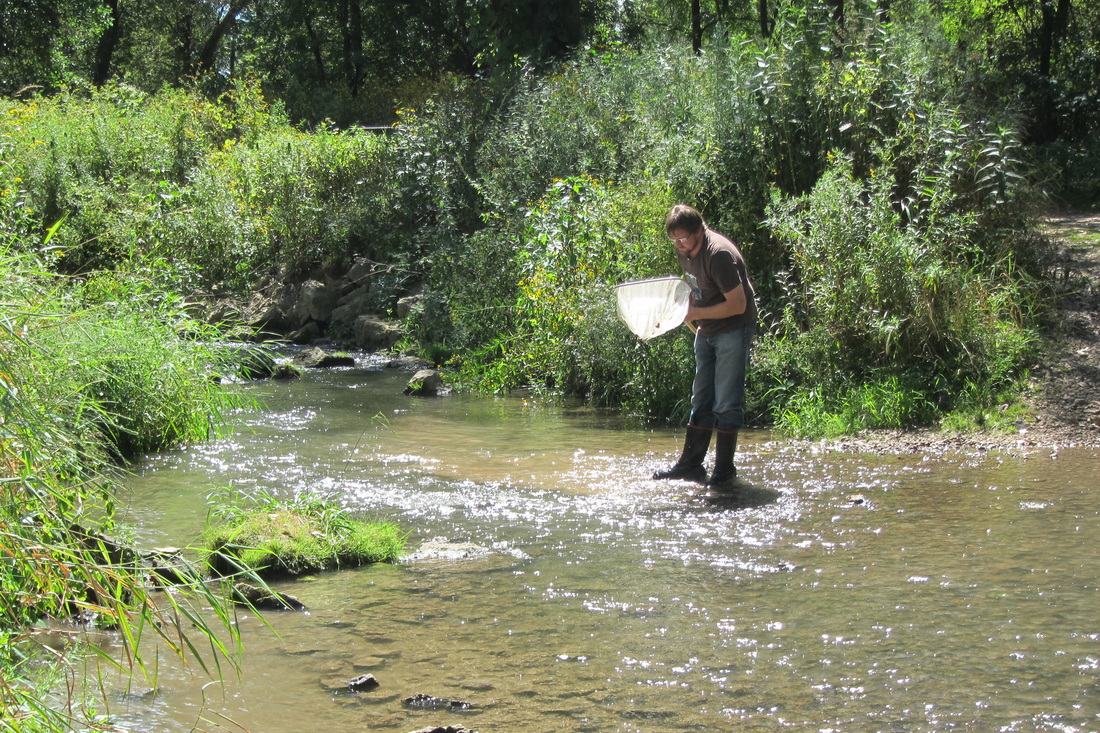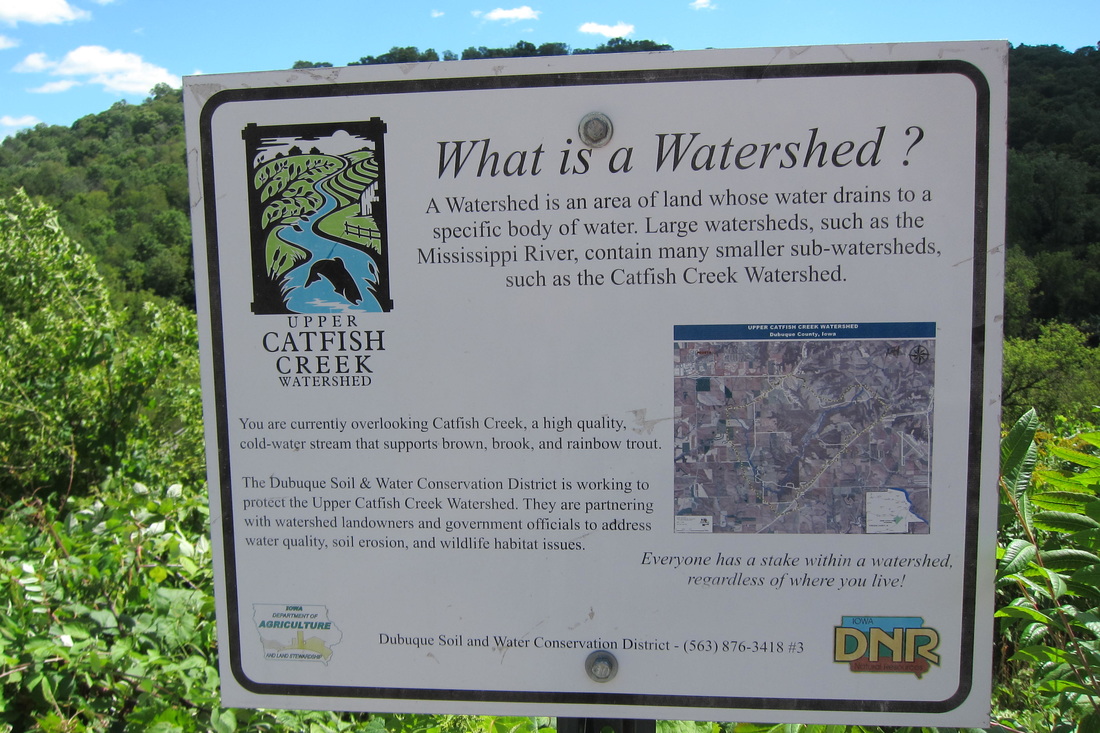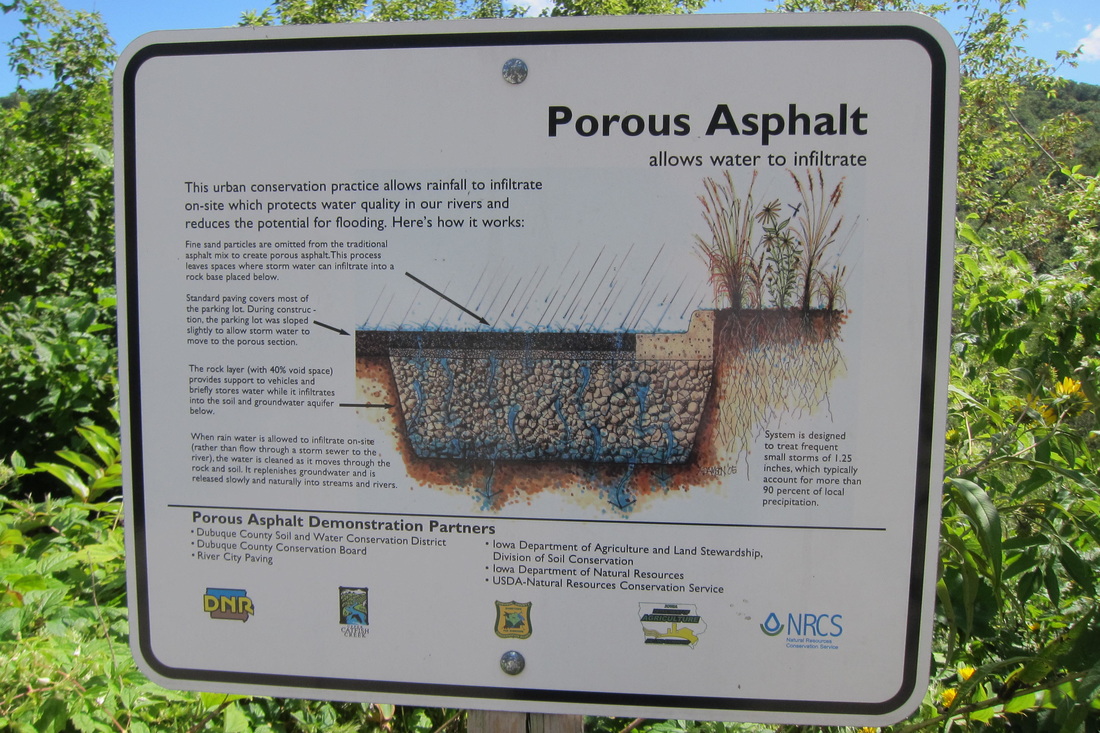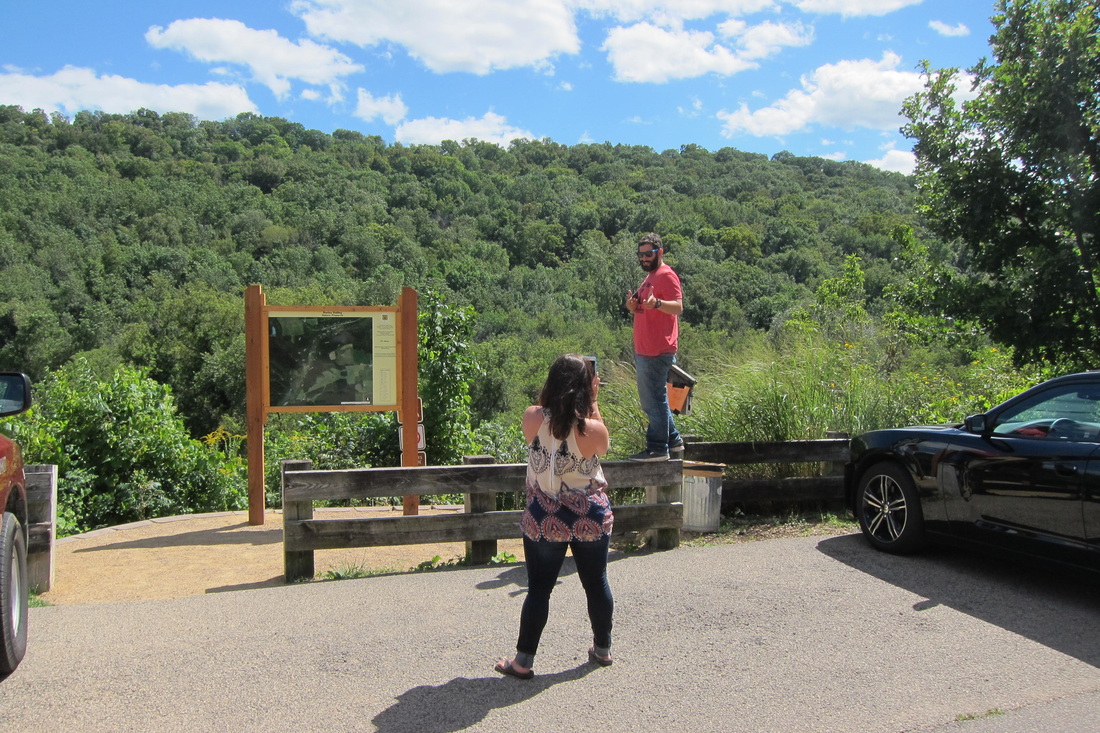We took a field trip with Dean and Eric to the Swiss Valley Nature Center where we enjoyed the nature center itself, and then took a brief walk down to the creek where Dean did a benthic invertebrate search to show us how the types of invertebrates found can be used as indicators for the health of the water.
When I spoke earlier with Chuck Isenhart and Dean and Eric, they shared with me a great deal about the water quality issues of Iowa. Since 1993, Dubuque has declared itself a national disaster area 8-9 times due to flooding. Therefore, Dubuque is trying to work on decreasing flooding by implementing some of these tactics:
Thirty-one states and 2 provinces drain into the Mississippi River, and Minnesota and Wisconsin are considered to be leaders in protecting their lakes, but all the states in the Mississippi River watershed do things differently, and assuming all MN and WI's tactics is not as easy as saying they should. Political pushback can be great in some of these states because the culture is one of fearing that someone will dictate what the land can be used for. What is crucial is working together across boundaries to use rational boundaries instead. Rather than dictating what farmers can do with land, legislators want to implement a "we'll help you if you help yourself" planning principle. Looking at the ecology as a whole, not just measuring nitrogen run-off, is one way to encourage and measure solid planning.
Chuck Isenhart was clear about a few points:
When I spoke earlier with Chuck Isenhart and Dean and Eric, they shared with me a great deal about the water quality issues of Iowa. Since 1993, Dubuque has declared itself a national disaster area 8-9 times due to flooding. Therefore, Dubuque is trying to work on decreasing flooding by implementing some of these tactics:
- Sediment ponds and flood control structures
- buffers along rivers to sink water
- take land out of production
- use flowering plants and sedges along waterways rather than other crops
- filter and impound water
- stormwater ordinances
- bioswales and permeable pavers to replace asphalt
Thirty-one states and 2 provinces drain into the Mississippi River, and Minnesota and Wisconsin are considered to be leaders in protecting their lakes, but all the states in the Mississippi River watershed do things differently, and assuming all MN and WI's tactics is not as easy as saying they should. Political pushback can be great in some of these states because the culture is one of fearing that someone will dictate what the land can be used for. What is crucial is working together across boundaries to use rational boundaries instead. Rather than dictating what farmers can do with land, legislators want to implement a "we'll help you if you help yourself" planning principle. Looking at the ecology as a whole, not just measuring nitrogen run-off, is one way to encourage and measure solid planning.
Chuck Isenhart was clear about a few points:
- We are being proactive in the area
- We are building partnerships in the area to deal with issues
- These are BROAD issues--we are looking to deal with ALL of the potential problems, not just a few
- For long term changes, we all need to talk about current practices that generate the problems.






 RSS Feed
RSS Feed
